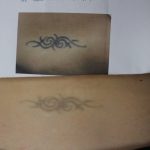Skin health: Tips and tricks to keep your skin in tip top condition!
The skin is the largest organ in your body and it plays a vital role in detecting hot and cold, regulating your temperature and protecting you from infection. It’s vitally important you look after it and give it the respect it deserves.
Here are some tips we have put together in honour of Septembers Skin Care Awareness Month.
Eat the right foods and drink water
It is imperative to eat foods that are rich in vitamins, minerals and antioxidants. Foods such as leafy green vegetables, melons, berries, nuts and avocados help your skin feel and look refreshed. Drink PLENTY of water. Aim to drink 1.5 litres of water a day. The body can then flush out the toxins that can cause issues with the skin.
Avoid harsh soaps and chemicals on the skin
Washing daily with drying soaps can cause irritation and soreness. We would recommend finding the right cleanser for your particular skin type.
Even oily skin needs moisture
Use a moisturiser with natural ingredients in such as Vitamins A and E, Aloe Vera and Oatmeal. With oily skin people tend to avoid moisturiser as they feel this will make the oily situation worse, the opposite it actually true. Trying to dry your skin out often makes your skin produce even more sebum (the skins natural moisturiser). We love AlumierMD’s hydra light moisturiser which contains Hyaluronic acid, aloe, niacinamide and peptides.
Sun protection is vital, not just for your skin health but for general health too
Sun protection factor 30, is the single most important (and simple!) thing you can do for your skin to keep it young and healthy looking. Sun burn in childhood increases your risk of skin cancer in adulthood, but we still need to protect ourselves from burning as adults too. You wouldn’t put any of your other organs at risk of burning, so why would you put your skin at risk?
Use a broad spectrum (protects against both UVA & UVB rays) sun protection factor 30 or higher. If you would like more information on how to choose a sun screen please read this article .
Clean your make up brushes
People tend to overlook this simple trick, but if your brushes are clogged with bacteria and dead skin cells (which they will be if not washed regularly) then you are putting your skin at risk of clogged pores and breakouts. Wash them with baby shampoo or a foaming cleanser once weekly and leave to air dry.
Sleep
Go to bed early, it’s not called beauty sleep for no reason! Almost half of us are only sleeping six hours a night. (Sleep Council ‘Toxic Sleep’ survey, January 2011). When we don’t achieve our 8 hours a night, the body releases more of the stress hormone cortisol, which starts off an inflammatory type response in the body and plays havoc on our skin. Also if you suffer with breakouts /congested pimply skin, changing your pillow case every few days can help.
Exfoliate regularly
The skin regenerates itself every 28 days. To help shed off the top layer of skin, exfoliate it with regular chemical peels and you can maintain your results with a great home care routine. This should include a gentle daily AHA/BHA exfoliant. Also replacing moisture with a hyaluronic acid based serum, ideally containing a medical strength quality peptide to reduce fine lines and wrinkles will really help the skins appearance. Exfoliating will help to reveal younger, plumper looking skin cells underneath, but don’t head for abrasive or harsh scrubs which are not only bad for the environment but also for your skin.
Vitamin C&E
Normal skin contains high concentrations of vitamin C, which supports important and well-known functions, stimulating collagen synthesis and assisting in antioxidant protection against UV-induced photodamage. As time passes, scientists and skin specialists are realising the importance of Vitamins C & E applied topically to strengthen the skin, promote resilience and reduce ageing and pigmentation. No Vitamin C serum is better than AlumierMD’s Everactive C&E. Its unique patented technology allows the full strength 15% L Ascrobic Acid (the maximum the body can absorb) to be delivered into the skin.
Please click here to find out why we think it is the most powerful and effective serum on the market today.


